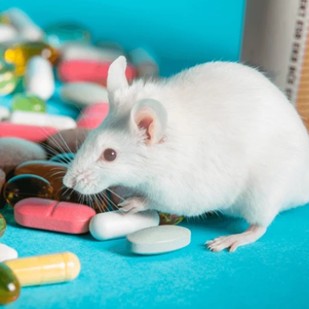Necrotizing Enterocolitis
- Home
- Solutions
- By Diseases
- Intestinal Diseases
- Necrotizing Enterocolitis
Necrotizing enterocolitis is a catastrophic digestive tract disease that causes intestine inflammation. This can interfere with the normal functioning of several bodily organs, leading to high rates of disease and even death. Protheragen, as a provider of research services for uncommon conditions affecting the gastrointestinal tract, offers comprehensive services customized to the requirements of various researchers and scientists in the field.
Necrotizing enterocolitis is a rapid progressive intestinal destruction of an infant's immature intestines. This commonly occurs in the intestines of preterm and low-weight newborns with a prevalence of approximately 0.1%. Necrotizing enterocolitis has the propensity to develop necrotizing infection which further leads to sepsis, peritonitis, perforation, and in dire cases, demise. This condition affects preterm children at a disproportionate rate, having a mortality rate of approximately 25%.

Fig.1 Necrotizing enterocolitis risk factors. (Colarelli, A. M., et al., 2024)
Even though the cause of necrotizing enterocolitis remains unclear, it is well-known that prematurity is the main factor. This is because newborns with intrauterine growth restriction or preterm infants have intestines with poor peristalsis, high permeability, and low secretion of acid as well as digestive enzymes. These infants have low chances of survival due to the viability factors. Furthermore, the intestinal mucosa is damaged effortlessly and in the presence of inflammation, it can lead to total necrosis and perforation which subsequently triggers the systemic inflammatory response and results in neurodevelopmental and pulmonary complications.
 Fig.2 Necrotizing enterocolitis therapy strategies. (Hu, X., et al., 2024)
Fig.2 Necrotizing enterocolitis therapy strategies. (Hu, X., et al., 2024)| Drug Names | Mechanism of Action | Targets | Research Phase |
| Heat Killed Probiotics | Controlling the expression of intestinal tight junction proteins and barrier function. | / | Phase II |
| SHMOs | Inhibition of mast cell buildup, DPPI activity, and TLR4 expression in the ileum tissue. | / | Preclinical |
| rhIGF-1/BP3 | Maintains the development and integrity of intestinal microvessels, enhances enterocyte proliferation and migration, and reduces local and systemic inflammation. | IGF-1R | Preclinical |
Disclaimer: Protheragen focuses on providing preclinical research services. This table is for information exchange purposes only. This table is not a treatment plan recommendation. For guidance on treatment options, please visit a regular hospital.
Utilize novel technologies and approaches so that your research on necrotizing enterocolitis is on the cutting edge of science. Protheragen's modern facilities and equipment allow us to offer complete diagnostic and therapeutic development services. In addition, we provide customized disease model development services that allow researchers to recapitulate the pathogenesis of necrotizing enterocolitis in vitro and in vivo.
Animal models the fundamental in studying necrotizing enterocolitis due to their ability to provide disease mechanisms as well as possible therapy options. We recognize the complexity of necrotizing enterocolitis research, and therefore we provide you with the option to customize your research requirement whether it is genetically engineered models or any other model, we provide a service that caters to your research needs.

Animal Models for Necrotizing Enterocolitis
Additionally, Protheragen also renders unique services meant to meet defined research needs such as pharmacokinetics and biosafety testing. All of the services and promises seek to support researchers and the pharmaceutical industry's efforts for innovative therapeutics targeting necrotizing enterocolitis and other gastrointestinal disorders. If you wish to find out more about our services, feel free to get in touch to receive quotations and other details.
References
All of our services and products are intended for preclinical research use only and cannot be used to diagnose, treat or manage patients.